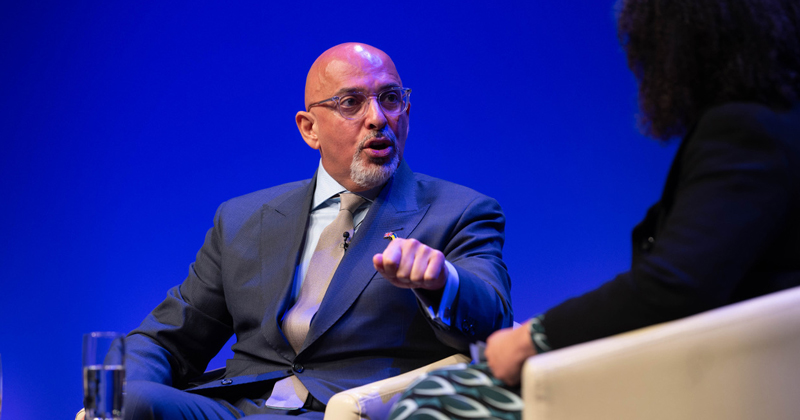The education secretary has admitted “too many children” do not get the chance to fulfil their potential, 11 years after his government came into power.
Nadhim Zahawi used his speech at the Association of School and College Leaders conference in Birmingham today to highlight progress since 2010, but said ministers had “not yet achieved every goal we need to”.
He outlined the flagship announcements trailled in advance of his speech, like making the Oak online school into an arms-length body and committing cash to continue the Education Endowment Foundation (EEF). He did not take questions from audience members or the media, however.
Here’s the best of the rest that school leaders need to know …
1. Pressure on weak trusts, regional cash for strong ones
Zahawi said his looming white paper would detail more about his ambition that all schools are in a “strong multi-academy trust”.
“I underline the word strong,” he added. He said he could not “sugercoat” the fact “some trusts are not high-performing”.
“We will set out how I plan to deal with that challenge as well.”
By contrast, areas in need will receive “extra investment to build strong trusts”, including Cornwall, Durham and Hartlepool, though Zahawi mentioned no figures.
These authorities are among the so-called “high priority areas” that part of the government’s trust capacity fund was ringfenced for last year, suggesting it will get more cash.
Meanwhile a consultation will begin “shortly” on tackling school under-performance, he added. “We want you to have your say.”
The consultation will likely include long-promised plans to move schools repeatedly rated “requires improvement” into academy trusts, rather than only “inadequate” schools as now.
2. New EEF ‘assurance badge’ for teacher development
The EEF will lead an “ongoing cycle of reviews” of the frameworks that underpin teacher development at all levels, Zahawi told ASCL members.
This will make sure they are “always based on what works”, and updated in line with evidence from both the UK and abroad.
It will also give an “independent badge of assurance” to the government’s teacher development programme and help ensure “cutting-edge training”.
3. NTP cash shakeup and watering down of rules
“I have listened and I have heard you,” said Zahawi on the “challenges” leaders had reported with the government’s flagship tutoring initiatives.
He said up to £65 million would be transferred into school-led tutoring route from funds previously earmarked for the academic mentor and tuition partner arms of the National Tutoring Programme. “By far the most popular route is the one run by you,” he said.
Ministers have also ditched a condition catch-up mentors must be graduates and will allow larger tutor groups, in a raft of changes that waters down criteria.
New figures show just over a third of the promised two million courses have started this year, with the majority organised by schools themselves. But Zahawi said the DfE remains “on track” to hit its target.
4. Relocation premium for teachers from abroad
Zahawi also highlighted a new “relocation premium” to boost the number of overseas teachers, amid concerns over teacher recruitment levels as a Covid surge slows down.
The government had already been offering “acclimatisation” support as part of a pilot.
“Because teaching is an increasingly global profession, I want to attract the very best teachers across the world,” he said.
“That is why we will also introduce a new relocation premium to help with visas and other expenses for teachers and trainees moving here from abroad.”
5. Oak lessons translated for Ukrainian children
Oak is rolling out auto-translate functions for all 10,000 of its online lessons, Zahawi said. It means Ukrainian children arriving in the UK can access education “in their native language as they transition into life and safety here”.
Oak’s translation functionality is only currently available for the most common non-English languages, such as Urdu and Polish. It uses Google Translate, with Oak officials noting “accuracy cannot be guaranteed”.
He added that his team was already making “plans” to build school place capacity for 100,000 Ukrainian children. The government has come under fire over its strict visa rules however, with only a limited number of Ukrainians able to enter the UK so far.
















Your thoughts